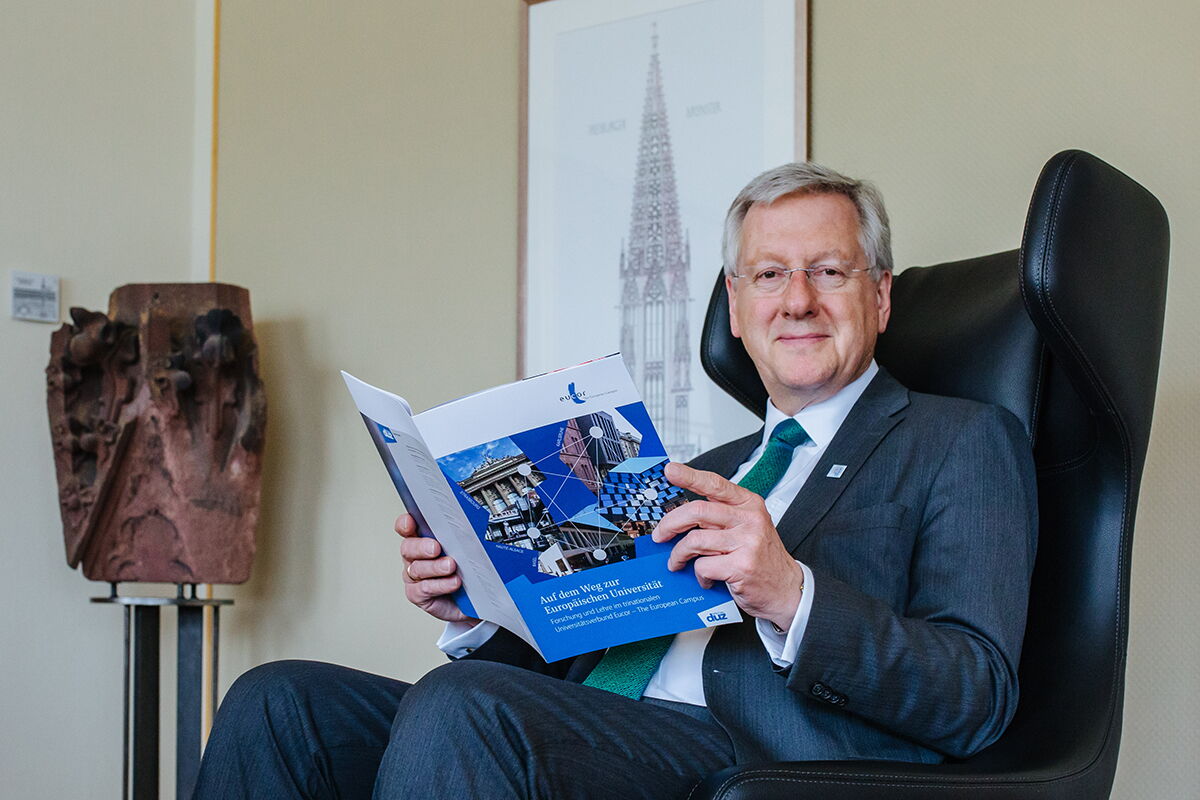The duz is dedicating a magazine supplement to Eucor – The European Campus

Since the French president Emmanuel Macron made a call for “European universities,” a new dynamic has emerged in higher education policy-making. However, a model already exists in the Upper Rhine region. This vision of cross-border education is now being presented in the special magazine supplement “Auf dem Weg zur Europäischen Universität: Forschung und Lehre im trinationalen Universitätsverbund Eucor – The European Campus” (On the Way to a European University: Researching and Teaching in the Trinational University Alliance Eucor – The European Campus).
“Interdisciplinarity and internationality enrich the world of universities in terms of teaching and research. Having a high degree of diversity and a variety of perspectives encourages new questions, expands horizons, and cultivates new approaches,” said Prof. Dr. Hans-Jochen Schiewer, the rector of the University of Freiburg and president of the university alliance Eucor – The European Campus. In order to increase the potential of this cross-border collaboration, the universities of Basel, Freiburg, Haute-Alsace, Strasbourg and the Karlsruhe Institute of Technology have established joint structures, joint governance, and a joint strategy for research and teaching. They also founded a legal entity recognized by the EU that will allow them to work even more closely in the future. According to Theresia Bauer, the minister of Sciences, Research, and the Arts of the State of Baden-Württemberg, the alliance has since developed into a “nucleus of a European university.”
Mobility and Multilingualism
The special magazine supplement published by the Deutsche Universitätszeitung (duz) presents the Eucor alliance and the opportunities it has to offer. The five universities work across disciplines and borders in many fields, including sustainability research. “There may no longer be a real border between Germany and France, but the way people think changes at the border,” said Barbara Koch, Professor of Remote Sensing and Landscape Information Systems at the University of Freiburg. For example, renewable energy is less important in public debates in France than it is in Germany, but there is less public resistance to wind turbines in France. “Different attitudes like these should be put to use in planning,” Koch said.
Other issues in the magazine supplement include mobility and multilingualism in education, student-run initiatives, and the funding program Seed Money, which provides financial assistance to research and teaching projects. The magazine will be published as a supplement of the duz on April 27, 2018.
Or order it for free from the Publisher.